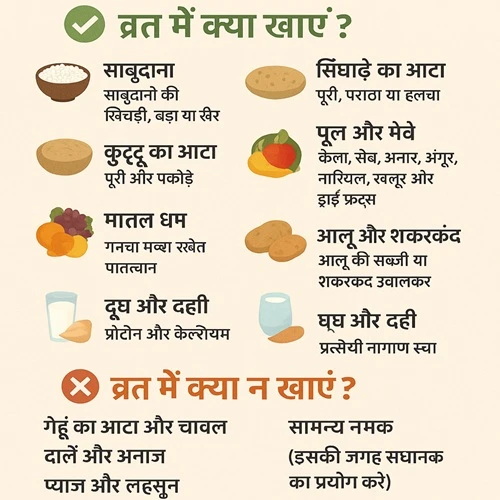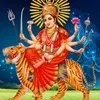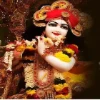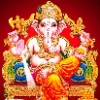Fasting (vrat) holds special significance during Navratri. During this time, devotees worship Goddess Durga and consume a sattvic diet. Fasting is not just a religious practice, it is also a way to detoxify the body and attain mental peace. Following the right diet helps maintain energy and maintain balanced health during the fast.
What to eat during Navratri fast?
Sabudana:
Sabudana khichdi, vada, or kheer are considered excellent for providing energy during fasting.Water chestnut flour
It is used to make puris, parathas, or halwa. It is light to digest and nutritious.Buckwheat flour
Pooris and pakodas made from buckwheat flour provide both flavor and strength during fasting.Fruits and Nuts
Bananas, apples, pomegranates, grapes, coconut, dates, and dried fruits provide instant energy during fasting.Potatoes and Sweet Potatoes
Eating boiled potato curry or sweet potatoes will keep you full for a long time.Milk and Yogurt
A good source of protein and calcium. It prevents weakness.
What to Avoid During Navratri Fasting?
- Wheat flour and rice
- Pulses and grains
- Onions and garlic
- Meat and alcohol
- Round salt (use rock salt instead)
Things to Keep in Mind During Fasting
- Drink plenty of water and fluids.
- Avoid oily and heavy foods.
- Eat fruits and light meals at short intervals throughout the day.
- Eat only after worship.
- Those with health problems should consult a doctor before fasting.








